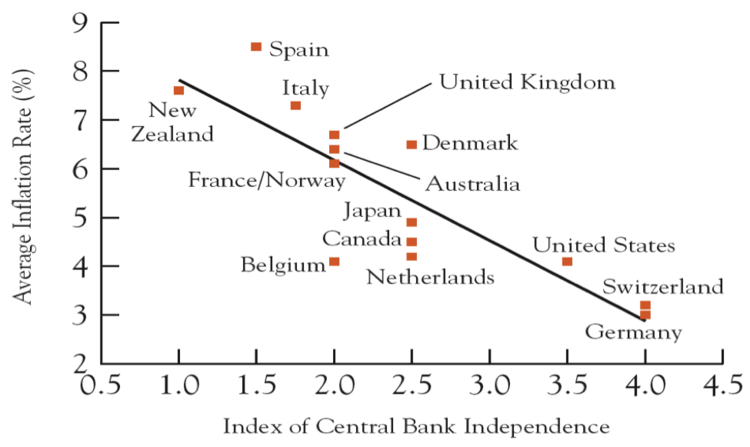The “Audit the Fed” debate is the latest manifestation of a conflict as old as the nation, between those who argue that a strong central bank improves economic stability, and those who see an overbearing government engaged in harmful meddling.
Congressional Republicans are calling for restrictions on the Fed's ability to do monetary policy:
In an inversion of the historical pattern, congressional Republicans have criticized the Fed for printing too much money, arguing higher inflation will be the inevitable consequence. And they have put forward proposals to constrain the central bank. One bill, known as “Audit the Fed,” would authorize the General Accountability Office to review the Fed’s monetary policy decisions. Another approach, backed by the House Financial Services Committee, would require the Fed to publicly articulate a set of rules it intends to follow in making monetary policy, and then explain any deviations.
Rand Paul is one of those leading the charge to rein in the Fed. But ultimately, a less independent Fed is more likely to cause inflation than not.

We may not like the economic times in which we live. But is reining in the ability of the Fed to do monetary policy the right way to change economic outcomes?
I find it interesting that Rand Paul wants the GAO to audit the Fed. GAO as I understand mostly focuses on making sure there is accountability but that is a completely different concern from whether the Fed's economic policies are good or bad. So even if these legislators bring the Fed "out of the dark," it's hard to imagine decision makers agree on one set of economic policies; associated uncertainties would remain then.
ReplyDeleteThere is a lot of talk of auditing the Fed, but I would be curious to know more about what exactly that means? As the video last week made clear, there is not always a clear answer for how a central bank should act. Even amongst the Board of Governors of the Federal Reserve there is no consensus on what policies should be enacted when, especially in abnormal economic times. With this in mind I think it becomes clear that the push to audit the Fed is more politically charged than it is financially responsible.
ReplyDelete